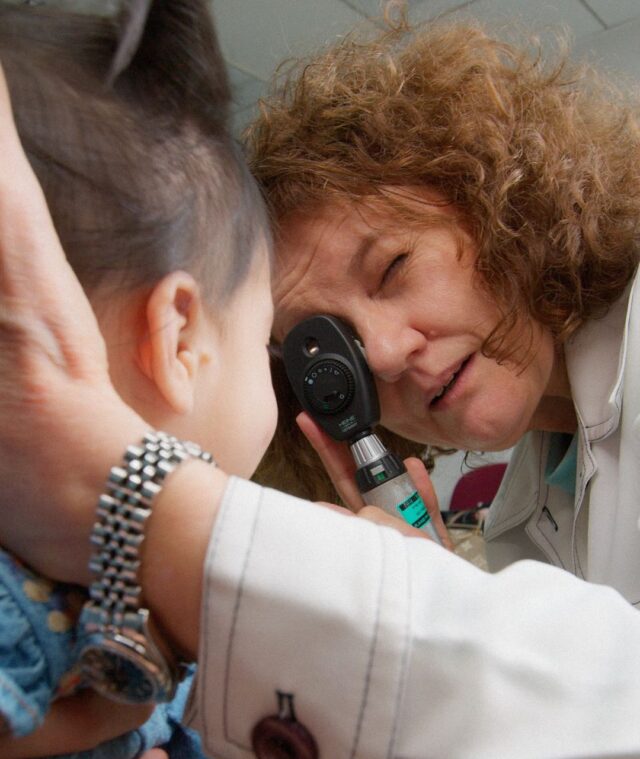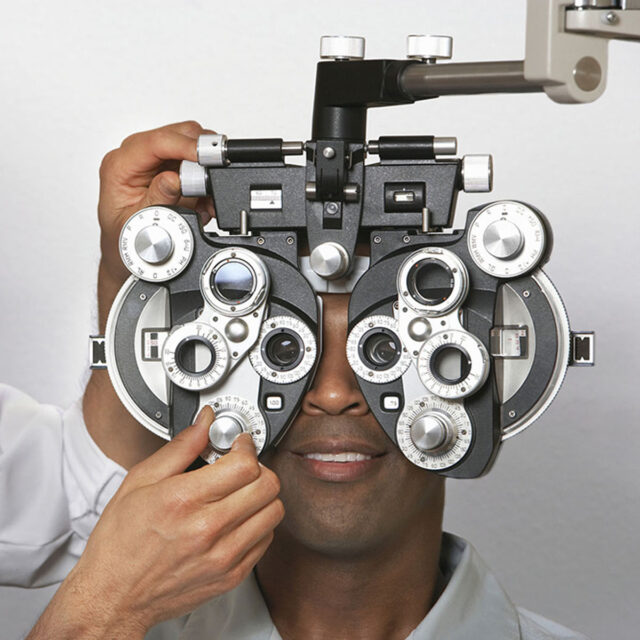Dry eyes, also known as dry eye disease or keratoconjunctivitis sicca, is a condition wherein the eyes do not produce enough tears or only produce tears of inadequate quality. Tears keep the eyes moist and help wash away foreign matter that could cause infection of the eyes. The result of dry eyes is a feeling of grittiness and irritation in the eyes.
Dry eyes is common among adults, but parents can also notice their children fussing over their eyes and begin to wonder, “Why does my child have dry eyes?” Here, our trusted ophthalmologists in Dubai discuss typical symptoms and causes of dry eyes in children, as well as possible treatment options and preventative measures parents must keep in mind to keep children from suffering this condition.
Symptoms of dry eyes in children
A child with dry eyes feels discomfort, irritation and pain. Symptoms of dry eye often include the following:
- Eye redness
- Blurred vision
- Frequent eye rubbing
- Stinging, itching and burning eyes
- Hot and tired eyes
- Sensitivity to light
- Excessive eye watering
- Stringy-like mucus in the eyes
- Discomfort while wearing contact lenses
If you observe these symptoms in your child and they are worsening, or if you notice changes (e.g. significant eye redness, deteriorating vision, signs of infection like a fever or a thick eye discharge/pus, or your child having difficulty performing daily activities), then it’s best to take them to a visit with your ophthalmologist to assess and diagnose their condition and to administer the proper treatment.
What causes dry eyes in children?
There are several factors that could cause dry eyes in children, such as:
Allergies
Allergies related to the eye, such as different and more severe forms of keratoconjunctivitis, could put children at risk of developing dry eyes. This is because these allergy types could cause issues like damage to and inflammation of the ocular surface, instability of the tear film, and neurosensory abnormalities.
Poor nutrition
A child experiencing eating disorders or malabsorption syndrome, or one following a vegetarian or vegan diet, may receive insufficient nutrients to support good eye health.
In particular, a vitamin A deficiency can result in two conditions: (1) a change in the cells that line the ocular surface, and (2) xerophthalmia, an issue wherein the eyes fail to produce tears. These can potentially cause dry eyes.
Inflammatory conditions
When a child experiences conditions like conjunctivitis (inflammation of the conjunctiva of the eye), blepharitis (inflammation of the eyelids), or rosacea (inflammation of the skin), their eyes can become affected as well in the form of dry eyes.
Frequent use of electronic devices
A 2021 study on the association between prolonged use of smartphones and the incidence of dry eye among junior high school students found that the longer a child used their smartphone, the lower their blink rate became. A reduced blink rate increases exposure and evaporation on the eye’s surface, which can lead to the instability of the tear layer and, consequently, dry eyes.
Taking medication
Some types of medication for certain conditions could cause or aggravate dry eyes in children. For example, some antihistamines, topical treatments for acne, and eyedrops could cause dry eyes to start or make existing dry eyes worse.
Dry eyes treatment for children
The correct treatment to administer to a child will depend on the specific cause of their dry eye. Generally, however, eye specialists, paediatricians or primary care physicians will prescribe eye drops to help maintain or replenish moisture in a child’s eyes.
In other cases, the following treatment methods may also be considered:
- Artificial tears (may also use ointments or gels)
- Eye drops that help increase production of tears
- Prescription medicines like topical cyclosporine, corticosteroids, or secretagogues
- Punctal plugs
- Surgery to permanently close the tear ducts
Ways parents can help prevent dry eyes in children
To help prevent dry eyes from developing, parents and caregivers can guide children in performing the following actions:
- Wearing sunglasses and using caps or umbrellas whenever outdoors to protect the eyes from the sun, wind, and dust
- Reducing daily screen time
- Taking breaks from computer and mobile device use and from reading
- Being mindful of blinking frequently
- Using a humidifier in the bedroom or other areas of the home and regularly cleaning the device
- Using eye drops regularly if the child wears contact lenses
- Eating a balanced diet which includes foods that are beneficial to eye health
- Taking eye-friendly supplements, like omega-3 fatty acids
- Avoid prolonged exposure to smoke
- Regularly using artificial tears throughout the day and lubricating eye gels and ointments during bedtime
- Making sure that any necessary medication is taken correctly every time
- Not using fans while sleeping
- Placing a warm, moistened cloth over the eyelids every morning for around 5 minutes, then lightly and carefully massage the eyelids (this helps increase the eyes’ natural moisture)
- Drinking plenty of water every day
Speak to your child’s eye specialist to determine the best dry eye treatment in Dubai for their specific symptoms and learn the correct methods to support their eye health every day. Reach out to us at Gulf Family Clinic today to book a consultation.








